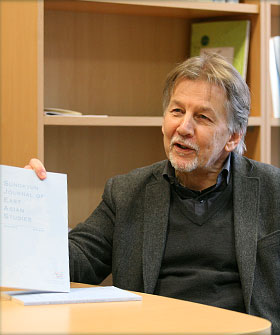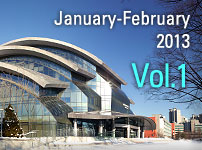SUNGKYUNKWAN UNIVERSITY (SKKU), SEOUL, KOREA



Please tell us something about your area of research?
Broadly defined you might call it the cultural history of Korea. In the past I have done quite a bit of research on shamanic songs and practices and the history of shamanic rituals, but in recent years I have focused on other areas. The first is the role vernacular literature, and particularly kasa, played in the Chosŏn period in spreading ideas of nationhood and communicating views how the nation should be governed. The second is the role of Buddhism in the period between 1600 and 1900, which I feel has been seriously underestimated. For that, too, kasa furnish interesting material. And then I have a book project that is focused on the social processes that underlie the writing of history or the representation of the past in other forms such as literature or film.
What do you think about the academic and research environment here at SKKU? How does it compare to Leiden University?
Leiden has been famous for its Asian Studies for over a hundred years, but the Academy of East Asian Studies to which I am attached also has an interesting variety of dedicated researchers in various fields of East Asian Studies, both modern and pre-modern, which is quite stimulating. I believe anyway that modernity is a very tricky concept and feel at home in an environment that does not unduly separate researchers in modernists and pre-modernists. For the rest, it is great to have the wonderful SKKU library at my disposal.
In my work in Leiden I did a lot of teaching for undergraduates in Korean Studies. Now I very much look forward to teaching the graduate students of the Academy, who not necessarily will have Korea as the focus of their studies but may be rather interested in China or Japan. Having had my first training in Japanese Studies at a time when from the first year the study of classical Chinese was a requirement, I deeply believe in the necessity of studying the different countries of East Asia within the East-Asian context, and for that the Academy provides an excellent environment. I also think that the integrated study of the countries of East Asia is the direction scholarship is taking, and in this respect SKKU is leading the way.
What made you decide to take up an editorial position at the Sungkyun Journal of Asian Studies and come to SKKU?
I knew of course of the good reputation of the university and in 1985 had enjoyed taking part in a conference organized by the Taedong munhwa yŏn'guwŏn, in which Daniel Bouchez from Paris and I were the only westerners, the other participants all East Asian scholars, which provided a refreshing change of perspective. When I was asked, about seven years ago, to join Professor Miyajima as editor of the Sungkyun Journal of East Asian Studies. I did not hesitate long to accept the invitation. The Journal was of good quality and its transnational nature attracted me. Having retired from Leiden University last year, I am very happy that I have been given the opportunity to join the Academy, which allows me to devote more attention to the editorial process than before.
























